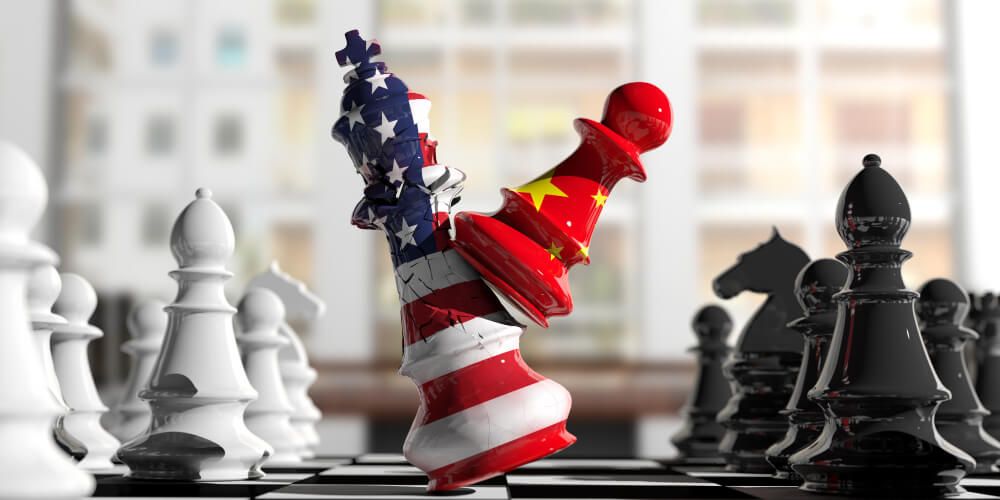In a country where international affairs are the subject of constant, open debate between official representatives, academics, and think tankers, and where public opinion weighs heavily, the question of what kind of relations the United States should maintain with China is a long-standing one. It pits those who promote engagement with Beijing against those who call for greater wariness.
The proponents of engagement are not all driven by the same motives. In the 1970s, Henry Kissinger began the establishment of diplomatic relations with Communist China for the purpose of “triangulation”—in other words, to diminish the international influence of the Soviet Union, which maintained relatively close ties with China. By contrast, in the 1990s, the engagement sought by the Clinton administration responded to the hope that China’s admission to the World Trade Organization might lead to Beijing opening up to the world and perhaps transitioning to democracy, along the lines of the Ostpolitik strategy launched by West Germany toward the USSR.
Growing Hostility on Both Sides of the Aisle
Between entering office in January 2001 and the 9/11 attacks, the George W. Bush administration had started to designate China as a new “peer competitor” that could take over from the USSR as the United States’ number one enemy. The containment strategy—known as the “Pivot to Asia”—was launched in 2009 during Barack Obama’s first term. Since Obama’s second term, the focus in Washington has been on outright hostility toward Beijing. This attitude is one of the few areas of bipartisan agreement in Washington today, achieving far greater consensus than the subject of support for Ukraine, for example.
Thus, the tariff war started by the Trump administration in 2018 has not been called into question by the Biden administration, which, on the contrary, has doubled down on its condemnation of China across the entire spectrum of subjects of Sino-American friction: human rights violations in China; a very unfavorable trade balance for the United States linked to unfair Chinese practices; the fraudulent acquisition of American technologies over the course of many years, and so on. More fundamentally, the prevailing perception in Washington is that of a Chinese power that has become increasingly assertive and active around the globe, threatening not only US interests and the American democratic model, but also the position of unipolar power that the United States has held since 1991.
In spring 2023, the United States was particularly active on two aspects of its China policy:
The Resurgence of Tensions over Taiwan
Faced with the increasingly substantial threat of a Chinese invasion, the United States appears to be calling into question the “strategic ambiguity” posture it has held since 1979. To bolster its military presence across the Indo-Pacific theater, the United States is currently strengthening a number of multilateral initiatives, such as the Quad (United States, Japan, Australia, India) and AUKUS (Australia, United Kingdom, United States).
Congress is preparing to vote on the Taiwan Policy Act, a law that will greatly strengthen US support for the island. Similarly, the Republican Speaker of the House, Kevin McCarthy, is planning to visit Taiwan this year, just as his Democratic predecessor, Nancy Pelosi, did in August 2022. Could this gesture, which Beijing has condemned as deeply hostile, trigger major hostilities between the two countries? Many observers in Washington agree with Graham Allison’s thesis in his 2017 book Destined for War: Can America and China Escape Thucydides’ Trap?, in which he denounces the risk of a war of succession between the two global powers, following the model of Sparta and Athens.
A Protectionist Turn
Breaking with the free-market principles adopted in the 1980s, the Biden administration is seeking to quell what it sees as a Chinese threat in the economic, trade, and technology domains. It has therefore maintained the customs tariffs imposed during the Trump era. Then, in October 2022, it severely restricted the export of American semiconductors to China. Washington is desperate not to see a repeat of Huawei’s domination in the 5G sphere. Joe Biden has also launched a firm industrial policy: with the Inflation Reduction Act and the Chips Act of summer 2022, the United States will strive to regain its independence from production chains passing through China, at least in the domains of semiconductors and electric vehicle batteries.
The very high level of commercial and financial exchanges between the two countries since the turn of the twenty-first century risks posing difficulties, and the decoupling that is underway will have to take place gradually.
What Are the Consequences for Europe?
The protectionist policies implemented by the Biden administration—be they subsidies for the reshoring of factories on American soil, or tech export controls—will have highly damaging consequences for European companies. Negotiations between Brussels and Washington are underway.
The Europeans fear that the Americans’ interest in China will sidetrack them from defending Ukraine against Russia, especially if next year’s presidential election is won by a Republican. The researcher Elbridge Colby—who held a senior position at the Pentagon under Trump—has stated that the United States should focus solely on the Chinese threat and avoid “distractions” such as the war in Ukraine. Yet, US engagement alongside Ukraine belies Russian and Chinese propaganda regarding a demobilized and weakened West. Vigorous support for Kyiv is probably the attitude most likely to dissuade Beijing from crossing the Rubicon on the Taiwan issue.


